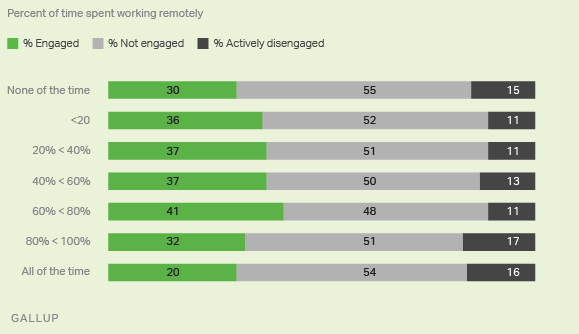 https://static.scs.georgetown.edu/upload/content/articles/main/millennials-doing-good-hero.jpg
https://static.scs.georgetown.edu/upload/content/articles/main/millennials-doing-good-hero.jpg
There?s a lot of debate about the benefits and drawbacks of the millennial generation?s arrival to the workforce. But their professional presence is indisputable: millennials ? defined as people born between 1981 and 2000 ? make up more of the current workforce than any other generation. They are on track to comprise up to 50% of the workforce by 2020 and 75% of the workforce by 2025.
Given that, it?s practically guaranteed you?ll manage at least one millennial in your career, if you?re not managing several already. Building a millennial-friendly workplace seems to be a topic of endless discussion these days, but in this article we?re focusing specifically on how managers can lead their millennial employees to success.
What follows are 5 mistakes managers make when leading a team of millennials. Avoid these common pitfalls to set your team up for success.
One quick note before diving in: every generation has its stereotypes, strengths, and quirks, but as a manager, you know that every employee, regardless of generation, brings something unique to the table. As such, generational guidance will only get you so far ? every employee requires their own special flavor of management to be their most effective.
Mistake 1: Misunderstanding why millennials work (hint: it?s not for free lunch or nap pods)
As a manager, it?s critical to understand what motivates your employees. In fact, 93% of leaders surveyed in Dale Carnegie?s Employee Engagement Research 2018 agree that fully-engaged employees drive better outcomes than those who are not. It?s hard to engage your millennial employees if you don?t understand what drives them.
Contrary to popular belief, millennials don?t always crave the extraneous perks like free gym memberships or masseuses. Millennials are very impact-motivated, caring about the impact their employer has on the world at large, and the impact the work they?re doing has on the organization. 84% of millennials care more about making a difference within their organization than about individual success.
Managers should create an atmosphere where millennials feel they are serving a purpose respected by the organization at large. Try explicitly discussing your millennial team member?s role within your organization and reinforcing their contribution towards that role regularly. When your employees can explicitly see how their role is connected to the organization at large, they are 3.5 times more likely to be actively engaged.
In order to attract millennials to their company, PwC has actually created a completely new position: the Chief Purpose Officer. The goal of this position is to ensure every employee knows that that their role is serving a greater purposes within the organization and within humanity. As a manager, you should be serving as the Chief Purpose Officer to the millennials on your team every day.
Mistake 2: Saving feedback for quarterly reviews
 https://www.lynda.com/Leadership-Management-tutorials/art-science-feedback/622053/664786-4.html
https://www.lynda.com/Leadership-Management-tutorials/art-science-feedback/622053/664786-4.html
As we?ve mentioned in previous posts, once-a-year performance reviews are a thing of the past. Millennials are very goal-oriented and prefer continuous, actionable feedback. They want to know that they are progressing towards their goals.
When helping millennials establish their goals, managers should engage in collaborative goal setting. This means formulating goals around the success of the team in addition to the success of the individual. When you are discussing goals, try not to label them as your goals or my goals for you but instead frame them as our goals. By framing goals like this, managers are demonstrating their role in seeing the goal succeed.
But why do millennials want frequent feedback?
Equally as harmful as not providing frequent feedback is misunderstanding why millennials are asking for regular feedback in the first place. It?s not because they crave praise more than older generations or that they are more anxious about failure (well, maybe they are), but rather they care about professional development more than any other generation. In fact, almost 9 in 10 millennials rated ?professional or career growth and development opportunities? as important to them in a job compared to the 69% of non-millennials who responded the same.
When looking at retention rates, ?opportunities to learn and grow? is the only factor that separates the needs of millennials from other generations.
Gallup has the follow message for managers:
?Managers need to recognize that millennials don?t feel entitled; they feel empowered. They want to expand their knowledge and skills, they want to be useful, and they want their work and workplace to have meaning to them.?
Mistake 3: Setting vague expectations
Vague expectations don?t set managers or their direct reports up for success. This is true for the entire workforce, but is especially important to remember when managing millennials. A survey from Qualtrics and Accel reported that what millennials wanted most when starting a new job (after being sufficiently trained) was having clearly set expectations and goals. Not to mention, nearly one-third of employees cite ?unclear expectations from supervisors? as their number one stressor in the workplace.
This dovetails nicely with Mistake 2: millennials want regular feedback so they?re aware of where they stand in relation to their goals. With specific metrics for success, in an easily accessible dashboard like Pathlight, millennials can easily and objectively know if they?re on track.
To avoid being vague without venturing into micromanagement territory, managers should provide their millennial reports with clear expectations coupled with flexibility on how they should execute. For example, a manager could tell their report that ?we need to increase our lead conversion rate by 10% this quarter? but collaborate with the report to determine the best route towards that goal.
Having measurable goals and discussing them regularly is a high driver for engagement scores. Employees who had goals that were explicitly defined and had talked about their progress within the past six months were 2.8 times more likely to be engaged in their work.
Mistake 4: Lacking flexibility within your work environment
Did you know that after income and benefits, flexibility is the third most important workplace incentive for millennials?
A Gallup report on perks and benefits showed that millennials are more likely to expect work-from-home and flextime opportunities. Flextime is when a supervisor sets the amount of hours an employee needs to work, but the employee can determine their own start and stop times. The report states that ?millennials perhaps view these workplaces as more modern and in tune with their lifestyle and priorities.?

You can see from the above graphic that engagement is highest when employees spend at least some of their time working away from the office. In fact, the highest engagement occurs when employees spend 60?80% of their time working off-site.
?Millennial values can be both contradictory and oddly pragmatic. Millennials value accomplishment over time logged, inclusion over exclusion, yoga pants over jeans (not literally) and sometimes, pets over kids.?
? Accel & Qualtrics, The Millennial Study
It certainly isn?t practical in all situations to let your employees work from home 3?4 days a week, and setting those kinds of policies may be out of your control at your workplace; however, experimenting with alternative working models to focus on outcome rather than amount of hours worked could be beneficial to explore.
Mistake 5: Underinvesting in professional development
Professional development is important to the vast majority of millennials. According to a 2016 Gallup study, ?87% of millennials rate ?professional or career growth and development opportunities? as important to them in a job ? far more than the 69% of non-millennials who say the same.?
Development opportunities aren?t only crucial when millennials are evaluating job offers; having structured professional development programs also increases engagement and retention levels. Employees are much more likely to invest their time and effort in a company that is also investing in them.
There are many ways managers can show their commitment to their employees? professional development, such as sponsoring employees to attend conferences, hosting outside speakers to come in and talk to the entire team, or collaborating with their Learning & Development teams to provide relevant trainings. Helping members of your team develop professionally will prove to them that you care about their success.
Conclusion
Bentley University?s Center for Women and Business sums up the millennial workforce quite well:
?Millennials have not rejected the corporate world, but they will seek other options ? if they cannot find workplaces that accommodate their personal values ? prominent among them time allocation, relationships and job security. They are confident in their abilities and strive for career success, but will not tolerate unpleasant workplaces that do not allow them to be their authentic selves in expressing their personal and family values. On the other hand, they are loyal and dedicated to companies that allow them to stay true to their personal and family values.?
The millennial presence will only continue to grow as older generations leave the workforce and the youngest millennials start to enter the workplace. When you know how to most effectively manage millennials, you set both your employees and your organization up for success. By avoiding these common mistakes you can develop a team of confident, high-performing millennials.
?
Are you a millennial who feels your manager might not get it right sometimes? Or are you a millennial who manages millennials? We would love to hear about your experiences!


